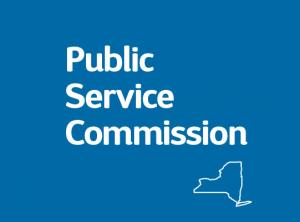New York: Competitive Energy Suppliers

The New York Public Service Commission denied an energy service company (ESCO) trade group's request to delay or curtail the scope of an ongoing investigation into the pricing of ESCO supply services provided to commercial and industrial (C&I) customers and associated ESCO profitability.
The inquiry had been prompted by complaints from C&I customers who suspected that they were being overcharged. A preliminary review showed that certain ESCO customers had indeed been paying much more for their energy than necessary. That led the commission to initiate a formal investigation through which it "cracked down on bad-acting ESCOs." It also deemed it necessary to prohibit ESCOs from serving lowincome consumers.
Moreover, the commission had moved on to its next step in the inquiry, which was to explore whether ESCOs can truly provide cost-efficient energy supply services and value to New Yorkers, and, if so, how they would do so within the parameters of the REV protocol. In challenging the extent of the commission's investigation, the ESCO trade group had argued that the commission's quest for discovery of detailed information about ESCO marketing practices, customer complaint data, and related resolution procedures went beyond the scope of the proceeding.
The group alleged that in some cases, to answer the commission's questions and comply with discovery motions would violate attorneyclient privilege rules. In rejecting the ESCO group's line of argument, the commission stated that attorney-client privilege pertains only to communications between an attorney and a client for the purposes of securing a legal opinion, legal services, or legal assistance. It found that none of the data at issue in the instant case fit the description of attorneyclient communications. That is, the commission averred, the requested data could be provided without revealing sensitive information about legal strategy or advice.
The commission noted as well that it had recently experienced two major legal victories confirming its efforts to rein in higher ESCO prices. It reported that in late June, a state supreme court judge in Albany County had deemed lawful New York's moves to protect low-income households from paying ESCO charges that were higher than utility rates, as a misuse of subsidies intended to keep gas and electricity more affordable for such households.
The second court order cited by the commission related to a late July decision from the appellate division, which upheld the Albany County supreme court's determination that the commission has authority to cap prices of ESCOs at utility rates. In that ruling, the court stated that the commission has broad authority under state law to control ESCO access to utility systems, which allowed the commission to place conditions on ESCO prices, even though the commission does not have direct rate-making jurisdiction over ESCOs. Re Eligibility Criteria for Energy Service Companies, Cases 15-M-0127 et al., Aug. 3, 2017 (N.Y.P.S.C.).



